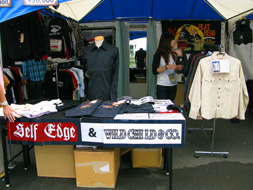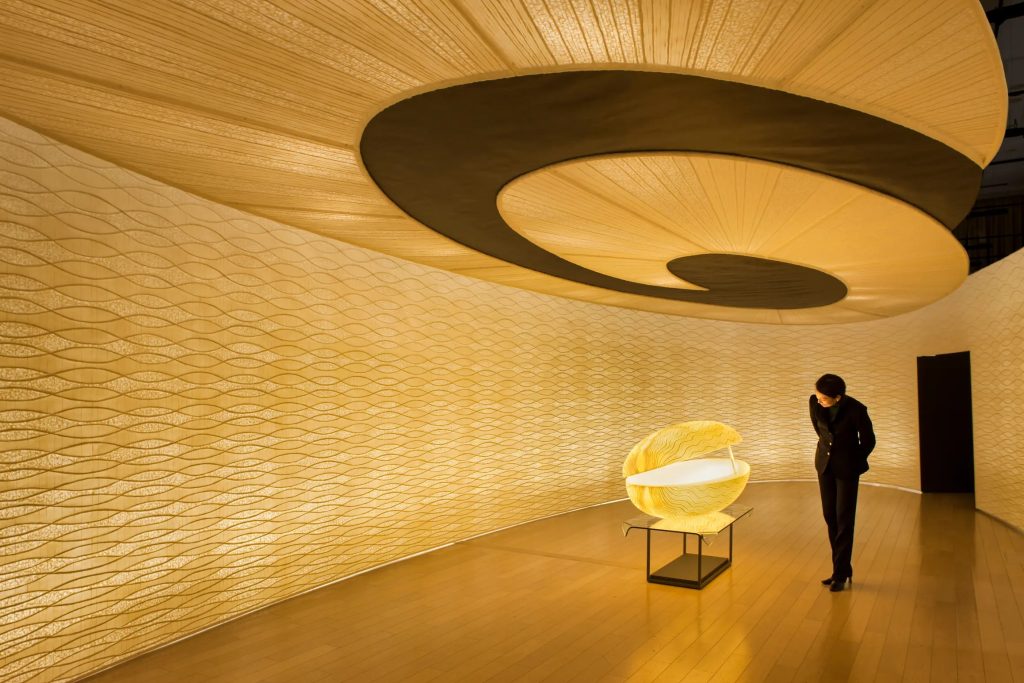Inazuma Festival: Japan Celebrates Americana

by Kiya Babzani
Japan's love affair with Americana is no secret. Hot rods, hamburgers and Harleys hold a special place in Japanese culture and their market for classic denim and workwear is thriving. So it's no surprise that the global leader in dressing up like the Fonz celebrated the fourth annual Inazuma Festival this Sunday on Odaiba, an island just off the mainland near Tokyo. Organized by Lightning Magazine, Inazuma (which is actually Japanese for "lightning") is a seven-hour marketplace hawking clothes by Japan's finest denim brands, with booths dedicated to everything from hot dogs and beer to Radio Flyers and motorcycles.
This year's festival welcomed 40,000 fans—some of who had camped out over night to get priority entrance—all intent on snatching up the most limited-quantity items, which were produced in batches as small as 20. Dry Bones attracted an acutely rockabilly crowd, while the motorcycle outlaws gravitated toward Iron Heart (who also held the distinction as the only booth with an on-site Union Special sewing machine to chain stitch jeans while customers waited). Female visitors tended toward Pure Blue Japan's indigo-dyed tees, tanks and shorts, and purveyors of WWII-era military gear turned the Real McCoy booth into an Air Force meeting circa 1952, straight down to the leather helmets and goggles.
The most popular brands, however, were perennial favorites Flat Head and Samurai , who were thronged for the whole event despite booths a full three times the normal size. In addition to their own gear, Flat Head sold selections from Wild Child and CH favorites Self Edge. This marks the beginning of a partnership where Flat Head will continue to represent the two brands in the Japanese market.
While firmly focused on the fashions of yesteryear, the 2008 Inazuma Festival is a testament to Japan's ability to improve on the classics. The festival featured flight jackets so painstakingly tailored that the manufacturer made less than five percent profit on its sale and leather accessories constructed by hand from start to finish without ever touching a machine. It's this care and dedication to textiles that ensures the endurance of Japanese brands, not to mention many future Inazuma Festivals to come.












